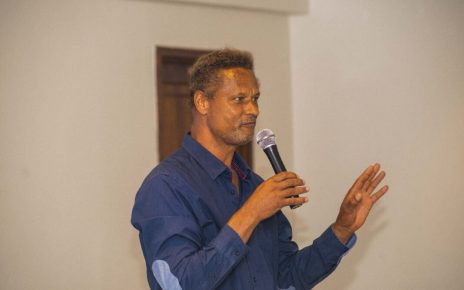The key driver of Tanzania’s tourism industry has unveiled its most ambitious plan of supporting local entrepreneurs to venture into tourism.
The Tanzania Association of Tour Operators (TATO) has so far assisted 17 out of 50 targeted entrants into the tourism industry in its latest efforts to create new employers and taxpayers.
Handing over the document for the first batch of entrepreneurs, TATO CEO, Mr. Sirili Akko, said his organization is keen to support startups to navigate through the intricate and costly process of formalizing their businesses.
“Minimum, it costs $86,500 to comply with registration and formalization of a tour company,” said Mr. Akko, explaining that $80,000 is for a tourist converted vehicle and $6,500 for regulatory bodies licenses fees, provisional tax, website, and lawyer’s charges.
These costs, he said, are prohibitive by any standards because a person with interest to venture into the tourism industry is faced with having to raise such an amount even before doing business. “And this is after the government trim-down [of] a compulsory number of vehicles for a new entrant into [the] tourism industry from three to one at the moment,” Mr. Akko noted.
Mosses Anderson, Godlisten William, and Charles Minja are the grateful pioneer beneficiaries of the TATO project.
“I’ve been craving to own my own tour company for 15 good years, but owing to the costs, I couldn’t.”
“I’m more than happy for TATO’s generous support that enabled me to realize my dream,” said Mr. Minja who vowed to work extremely hard to create employment for young professionals.
Meanwhile, TATO Chairman, Mr. Wilbard Chambulo, has pleaded with the government to create a conducive business environment in order to boost tourist numbers, as well as extend length of stay and revenues.
Mr. Chambulo told the Ministerial Public-Private Dialogue organized by the Tanzania National Business Council (TNBC) that tourism and any other businesses in Tanzania need breathing space to grow by leaps and bounds.
Mr. Chambulo said the government should focus on collecting corporate tax and VAT from profitable business and not creating multiple regulatory authorities at the expense of the business community to foot their overhead cost.
It is understood that various ministries and local authorities have been competing with each other in imposing fees especially on the tourism sub-sector. For instance, tourists traveling to Lake Natron and Oldonyo Lengai have since 2012 been subjected to cough up $40 each just on transit.
The Karatu District Council in the Arusha region from effective January 1, 2023, enforced a new tourists entry fee structure for the Lake Eyasi Cultural Tourism Program, prompting a key travel agent from Israel, Mr. Tal Kuperman, to cancel the trip of hundreds of tourists, citing a new fee as a reason as it would add an extra $25 per tourist.
As if that was not enough, Siha and Serengeti District Councils in the Kilimanjaro and Mara regions, respectively, also introduced a package of new levies targeting tourists’ vehicles operating within their areas of jurisdictions, adding salt to the wound.
A study on the Tanzanian tourism industry indicates that the administrative burdens of completing the license tax and levy paperwork place a heavy cost on businesses in terms of time and money. For instance, a tour operator spends over 4 months to complete regulatory paperwork, whereas in tax and license paperwork, consumes a total of 745 hours per year.
“Let’s focus on creating new businesses.”
“In tourism we should increase the number of licensed and compliant tour operators to leapfrog other economic sectors with substantial multiplier effects,” the TATO chief said.
“Startups ought to enter into business on a one-off registration token fee; once we grow the cake, it will expand the tax base and the rest will take care of themselves,” Mr. Chambulo said, amid applause from the floor.
Available records indicate that tour operators are subjected to 35 different fees that players complain that the dues eat into their capital.
He argued that the contentious issue is not only how to pay myriad taxes, make profits to sustain and expand business, but also the modality and amount of time spent in complying with intricate taxes.
“Tour operators need streamlining of documents from regulatory authorities seeking fees to ease compliance, because the cost of conforming is so high, and as such it acts as an obstacle for voluntary compliance,” Mr. Chambulo explained.





